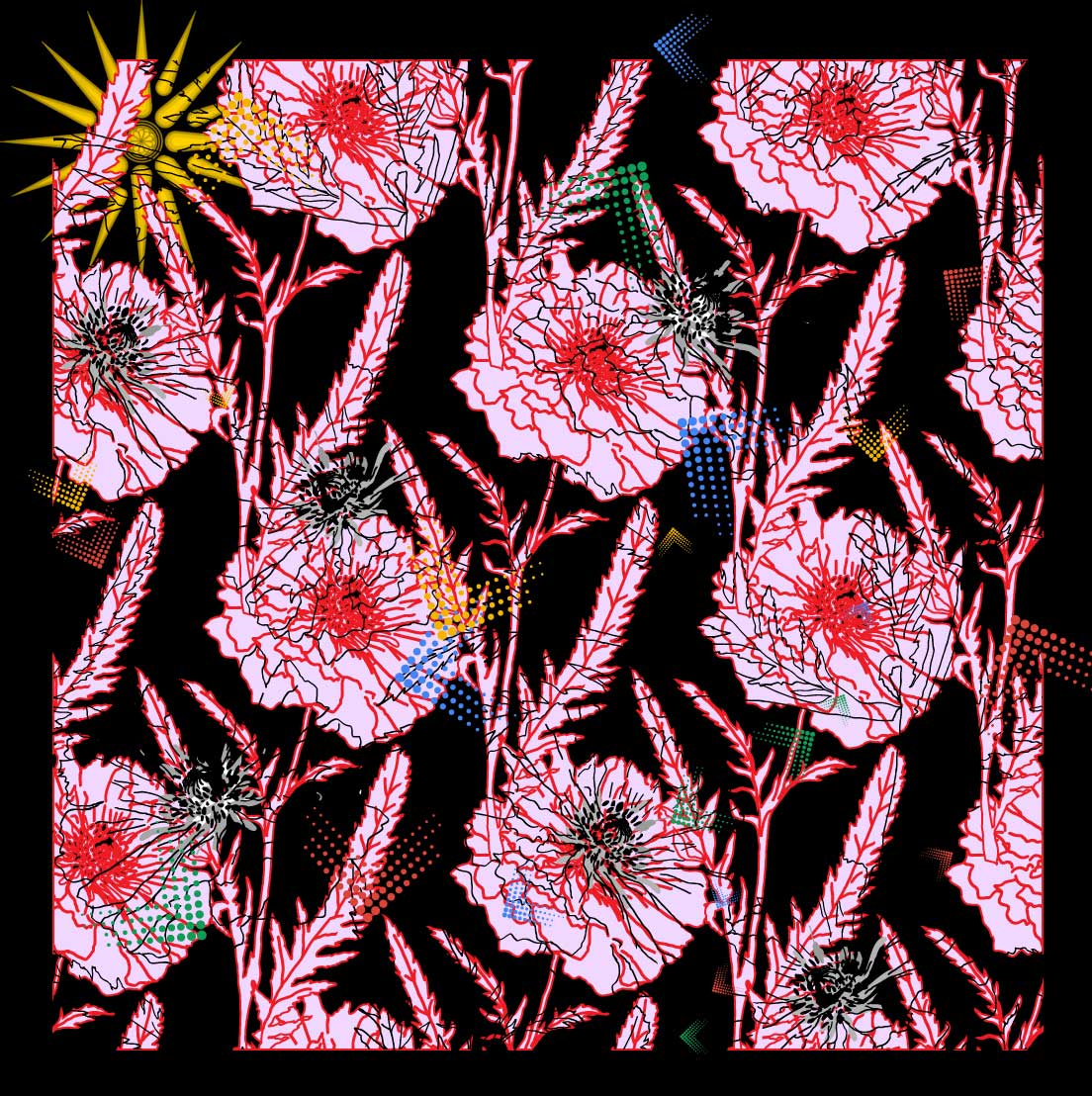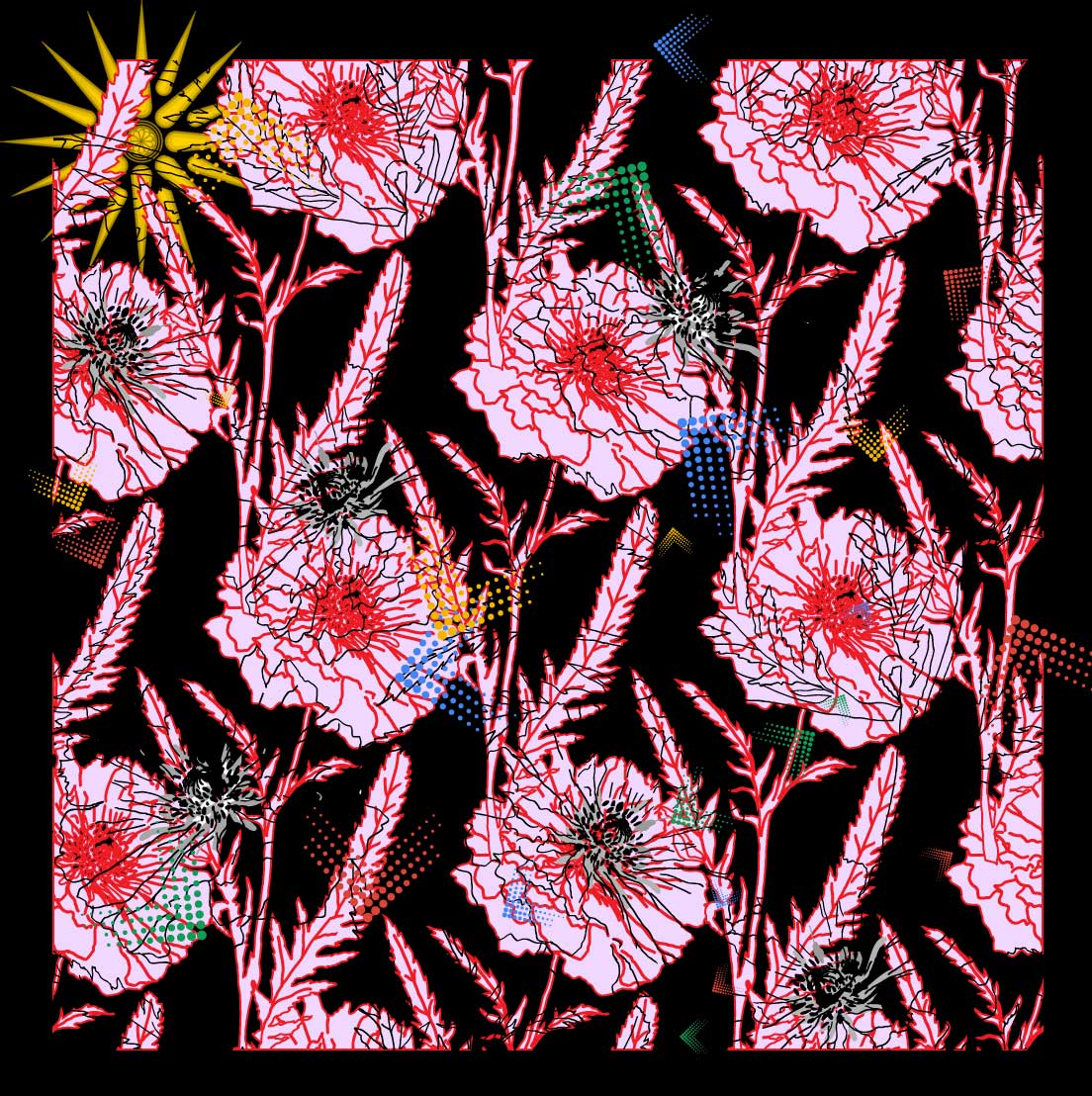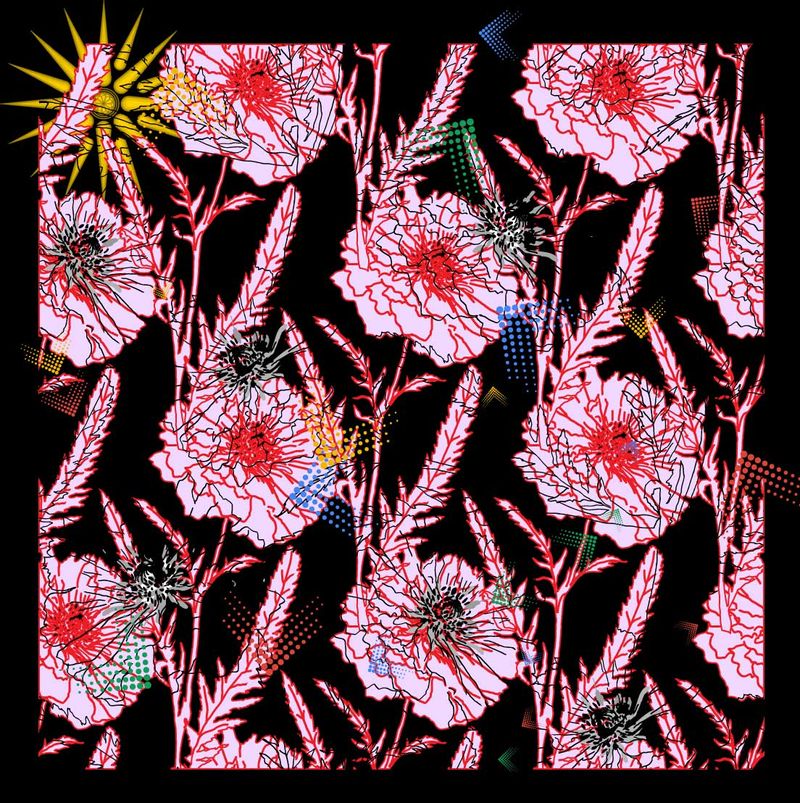Curated Chaos

Fight the Chaos
In the heart of a sprawling city, Alexander lived a life that on the surface appeared fulfilling. He was a professional with a predictable routine: wake, work, and rest, only to repeat it all again. This endless cycle was punctuated by fleeting weekends that promised freedom but delivered only brief respite from the monotony. Despite the facade of autonomy, a profound realization nagged at him, encapsulated by the haunting words of Johann Wolfgang von Goethe:
None are more hopelessly enslaved than those who falsely believe they are free.
— Johann Wolfgang von Goethe (1749-1832)
Alexander pondered deeply over Goethe's words, recognizing the invisible chains of societal expectations, financial obligations, and a pursuit of happiness dictated by external standards. His desires, once vast and untamed, had been systematically curtailed to fit within the acceptable confines of societal norms.
One crisp autumn day, as Alexander meandered through a city park, the barren trees stood as silent witnesses to the shedding of superficial layers, revealing the stark truth underneath. The laughter of children playing freely contrasted sharply with the resigned, almost vacant expressions of the adults watching over them. This dichotomy served as a stark reminder of what true freedom meant: not the illusion of choice within a cage but the courage to forge one's own path.
This realization ignited a fire within Alexander. He questioned whether he had the courage to dismantle the life he had meticulously built based on societal blueprints and instead, chart a course guided by his own compass. Could he redefine prosperity on his own terms and confront the chaos that such a defiance would inevitably bring?
Determined to escape the confines of a preordained existence, Alexander began to lay the groundwork for a new life. He envisioned a future where his decisions were rooted in authenticity, where he could truly feel the earth beneath his feet and gaze upon a boundless sky — a life rich in experiences that were genuinely his.
Embracing the chaos within, Alexander recalled the words of Friedrich Nietzsche, a quote that had once inspired him during his university years but had since been buried under the weight of pragmatic choices:
One must still have chaos in oneself to be able to give birth to a dancing star.
— Friedrich Nietzsche (1844-1900)
This chaos, Alexander realized, was not a force to be quelled but a fertile ground from which his true self could emerge. He began to channel this tumultuous energy into creative endeavors, transforming his once sterile apartment into a vibrant studio filled with his art, writings, and music. Each creation was a step toward the person he was meant to become, a rebellion against the expectations that had long constrained him.
In the cacophony of the city, Alexander found a new rhythm, a harmony that resonated with his emerging identity. His creations were not mere expressions of individuality but messages in a bottle, cast into the urban sea in hopes of reaching others who might also yearn for authenticity.
The transformation within Alexander did not go unnoticed. His colleagues and acquaintances began to see a change in his demeanor. Where there once was resignation, there now stood a man emboldened by his own authenticity, challenging the status quo not with words but through the very essence of his being. This shift was both inspiring and unsettling to those around him, compelling them to reflect on their own lives and the potential for change within.
Alexander's journey of self-discovery was not without its trials. Doubts and fears, like shadows, crept in, threatening to obscure the light he was striving towards. Yet, the memory of Nietzsche's words served as a beacon, reminding him that the path to his true self was through the storm, not around it.
As Alexander continued to dance with the chaos within, the discord between his inner transformation and the rigid expectations of the world around him grew more pronounced. The city, once a maze of constraints, now appeared as a vast chessboard where each piece moved according to predetermined rules. Alexander felt an urge to defy these movements, to carve out a space for his newfound freedom, yet he was met with resistance at every turn.
In a moment of introspection, surrounded by the tangible manifestations of his creativity, Alexander's thoughts turned to a fragment from Franz Kafka that he had once scribbled in a journal, a reminder of the delicate balance between the individual and the collective:
In the fight between you and the world, back the world.
— Franz Kafka (1883-1924)
These words, seemingly counterintuitive, resonated deeply with Alexander. He realized that his struggle was not against the world itself but against the version of the world he had accepted without question. To truly be free, he needed to understand the world's rhythms and move with them, harnessing their momentum to fuel his journey towards self-actualization.
Alexander adopted a new approach to life, one of observation and adaptation. He began to see the world as a complex symphony, with each element moving in harmony. In his professional life, he sought not to dominate conversations but to listen and adapt, introducing ideas that resonated with the collective ethos. His art and music became more reflective of his surroundings, translating the urban chaos into expressions of shared human experience.
This dance with the world transformed the friction of resistance into a powerful force for growth. Alexander's peers began to view him not as an outlier but as a visionary, someone who understood the deeper currents that moved beneath the surface of everyday life. His superiors, once skeptical of his unconventional methods, now sought his counsel, recognizing in him a connection to something profound and universally relevant.
Alexander's journey became a source of inspiration for many. He showed that true strength lay not in confrontation but in the capacity to flow with the forces of life, shaping them into avenues for personal and collective expression.
The transformation that began within Alexander eventually extended outward, challenging and changing the perceptions of those around him. He realized that his pursuit of authenticity was not just a personal endeavor but part of a larger narrative of societal evolution. A quote from György Lukács captured the essence of this realization:
Bourgeois thought judges social phenomena consciously or unconsciously, naïvely or subtly, consistently from the standpoint of the individual. No path leads from the individual to the totality.
— György Lukács (1885-1971)
Alexander reflected on Lukács' words, recognizing the interconnectedness of individual journeys and the collective tapestry of society. His own transformation, while deeply personal, was also a thread in the broader fabric of communal life. Each act of creation, each moment of authenticity, contributed to the collective consciousness, resonating through the network of lives that make up the community.
This insight prompted Alexander to shift his focus from the singular to the plural. He engaged in dialogues not as a preacher of his own philosophy but as a listener and a learner. He collaborated on projects that extended beyond the realm of art, lending his talents to initiatives that aimed to uplift and unify. His work took on a new depth, reflecting not just his personal journey but the shared experiences of those around him.
Through this lens of collective creativity, Alexander and his community began to explore new ways of being. The city itself transformed, as walls that once divided were replaced by bridges of understanding and cooperation. The question shifted from What can I become? to What can we create together?
This communal perspective gave new meaning to the chaos of the world. It was no longer seen as a force to be battled but as a rich tapestry to be woven into the fabric of collective experience. Alexander's contributions, significant not because they stood out but because they harmonized with others, helped to paint a picture of a society where prosperity was measured not by individual achievement but by the richness of communal life.
Alexander's journey had led him from the chaos within to a recognition of the totality that surrounds us all. In doing so, he discovered a deeper freedom, one that was not just about personal liberation but about contributing to the liberation of the collective. In this new chapter of his life, Alexander found not just contentment but a profound connection to the world around him, a connection that illuminated the path for others seeking their way through the complex dance of life.
As Alexander's narrative unfolded, it became clear that self-actualization was not an endpoint but a continuous process of growth and contribution. A quote from Gerard Manley Hopkins resonated with him during this phase of his journey:
What a man can be, he must be. This need we call self-actualization.
— Gerard Manley Hopkins (1844-1889)
This imperative to realize one's potential became a guiding principle for Alexander. He understood that to be true to himself, he had to nurture his talents not for personal glory but for the joy they brought to himself and others. His creative work became a means of sharing his essence with the world, inspiring others to explore and express their own unique voices.
Alexander's influence extended beyond his immediate circle. He became a mentor to a group of young artists, drawn to his commitment to authenticity and growth. Together, they embarked on projects that broke new ground, blending art with activism, and beauty with purpose. Their work transformed public spaces into canvases for dialogue and discovery, inviting the community to engage with art in new and meaningful ways.
This collective endeavor enriched Alexander's personal relationships as well. Bonds that had once been superficial deepened, as he and his peers shared not just their triumphs but their struggles and vulnerabilities. Through this shared vulnerability, they discovered the true strength of character, a strength that was not about adhering to external standards but about staying true to one's own values and convictions.
Alexander's journey highlighted the profound impact of character, not as a fixed trait but as a dynamic force shaped by our choices and actions. He initiated discussions and activities that encouraged not just creativity but also ethical reflection and personal growth. These gatherings became safe spaces for individuals to explore the depths of their character, guided by the principle that true character arises from authenticity and the courage to confront one's own nature.
In exploring the origins and expressions of character through his art, Alexander inspired others to embark on their own journeys of self-discovery. His work served as a mirror, reflecting the shared struggles and aspirations of the human experience, and fostering a deeper understanding of the complex dance between light and shadow within us all.
Alexander's evolution from a solitary seeker of authenticity to a catalyst for collective growth demonstrated that character is not bestowed upon us but cultivated through our engagement with life. His story became a testament to the art of character-building, a process that each of us undertakes in the quiet, often unseen moments of our lives.
As the city evolved, mirroring the ethos of its inhabitants, the pursuit of material success found balance with the cultivation of ethical excellence. Alexander's path illuminated the way for others, showing that within the chaos of existence, there lies the potential for growth, connection, and the realization of our fullest selves.
Indeed, let's continue and integrate E.O. Wilson's perspective into Alexander's evolving story, expanding on his realization about character and its deeper roots:
As Alexander's journey of self-actualization and collective contribution unfolded, he found himself engaging in deeper reflections on the essence of character and identity. These musings were often shared during gatherings with friends and collaborators, where discussions ranged from art and philosophy to the intricacies of human nature. It was during one of these sessions, amidst a heated debate on the origins of morality and ethics, that Alexander recalled a poignant quote by the biologist E.O. Wilson that resonated with his recent reflections:
True character arises from a deeper well than religion.
— E.O. Wilson (1929-2001)
This insight struck a chord with Alexander, offering clarity amidst the complexity of his thoughts. His personal transformation and efforts to effect societal change had led him to a profound realization: the true essence of character was not derived from external doctrines or societal norms, but from an inner depth that transcended conventional sources of moral guidance.
Alexander pondered on Wilson's words, recognizing that his own journey had mirrored this insight. His search for authenticity and his commitment to fostering a community grounded in genuine expression and mutual respect were manifestations of character that sprang from a place of deep personal conviction. This wellspring of character was not tapped from the teachings of any one religion or philosophy, but from the rich, complex layers of human experience and the innate capacity for empathy, integrity, and resilience.
Emboldened by this understanding, Alexander began to shift his initiatives towards nurturing this foundational aspect of character within his community. He organized workshops and discussions that went beyond the arts, delving into the ethics of everyday life, decision-making, and the subtle ways in which individuals could cultivate a deeper sense of integrity and purpose. These gatherings became incubators for personal growth, where participants were encouraged to explore the depths of their own characters, to question, and to reflect upon the values that guided their actions.
Alexander's own artistic endeavors also evolved to reflect this nuanced exploration of character. His music, paintings, and stories began to weave in themes of moral complexity, the struggles and triumphs of personal integrity, and the beauty of flawed humanity striving towards betterment. His work invited audiences to engage with art not just as a form of aesthetic pleasure, but as a mirror reflecting the intricate dance of shadow and light within the human soul.
Through this journey, Alexander came to see character not as a fixed attribute but as a dynamic, evolving quality shaped by life's myriad challenges and choices. He inspired those around him to recognize that true character was built in the moments of decision, in the courage to act with compassion and authenticity, even when faced with uncertainty or adversity.
In the end, Alexander's story and the community that grew around him stood as a testament to the idea that the deepest wells of character are found not in adherence to external dogmas, but in the quiet, often unnoticed acts of kindness, courage, and integrity. His legacy was a mosaic of lives enriched by the pursuit of genuine character, a collective journey towards understanding and embodying the virtues that define humanity at its best.
Thus, as the city's landscape continued to transform, reflecting the aspirations and values of its inhabitants, Alexander's insights into the nature of character, inspired by the wisdom of E.O. Wilson, became a guiding light. It illuminated a path forward not just for him but for all who were touched by his vision—a path marked by the pursuit of authenticity, the courage to confront and embrace the complexity of the self, and the commitment to building a world grounded in the truest expressions of character.
Through his journey, Alexander not only transformed his own life but also contributed to the transformation of the community around him. His story is a reminder that in the dance of life, we all have the power to shape our destiny, to weave our own narratives, and to light the way for others on the shared path of human experience.

The planksip Writers' Cooperative is proud to sponsor an exciting article rewriting competition where you can win part of over $750,000 in available prize money.
Figures of Speech Collection Personified
Our editorial instructions for your contest submission are simple: incorporate the quotes and imagery from the above article into your submission.
What emerges is entirely up to you!
Winners receive $500 per winning entry multiplied by the article's featured quotes. Our largest prize is $8,000 for rewriting the following article;

At planksip, we believe in changing the way people engage—at least, that's the Idea (ἰδέα). By becoming a member of our thought-provoking community, you'll have the chance to win incredible prizes and access our extensive network of media outlets, which will amplify your voice as a thought leader. Your membership truly matters!


